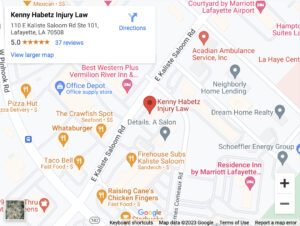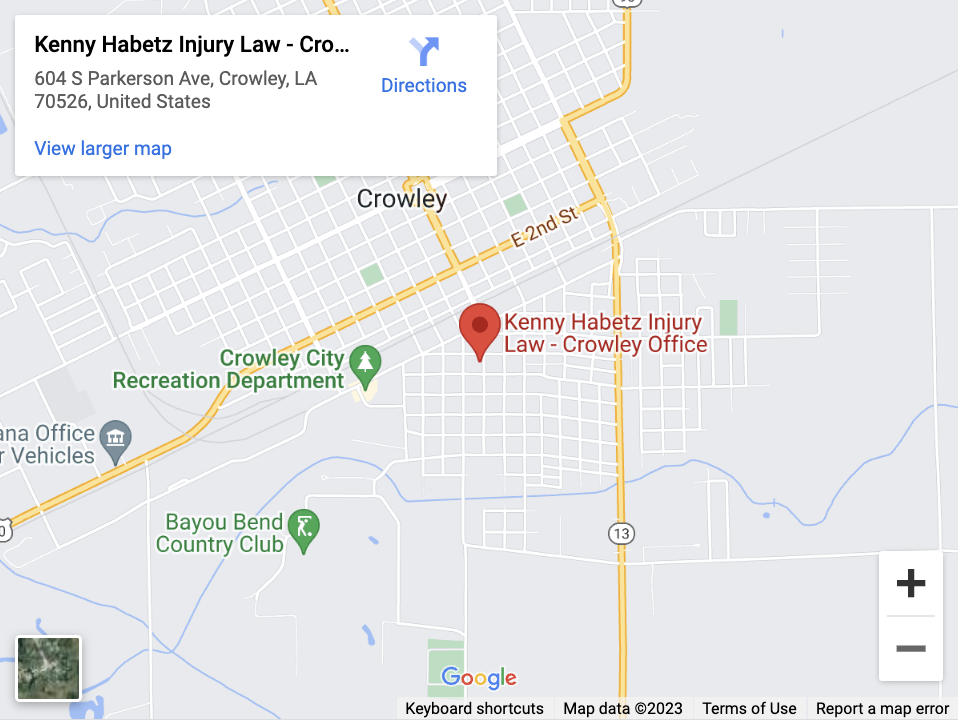
In personal injury law, breach of duty is one of the four elements necessary to prove a negligence claim. In fact, no negligence claim can stand unless the plaintiff (the injury victim) proves a breach of duty. Nevertheless, not all personal injury claims are negligence claims.
The Four Elements of a Negligence Claim
Breach of duty is one of the four elements of a personal injury claim based on negligence (in other words, most personal injury claims).
To win a negligence claim, you must prove:
- The defendant owed you a duty of care (to drive carefully, for example).
- The defendant breached their duty of care. In other words, they failed to meet their duty of care toward you.
- The defendant’s breach of their duty of care was the foreseeable cause of your injury.
- You sustained damages, such as medical bills, pain and suffering, lost wages, etc.
If you can prove all four of these elements by a “preponderance of the evidence,” you can probably win compensation from the defendant.
The “Preponderance of the Evidence” Standard
The “preponderance of the evidence” standard is one of the main standards of evidence that injury victims use to win personal injury claims. It is also one of the easiest standards to meet.
To meet the “preponderance of the evidence” standard, all you have to do is prove that the fact you are trying to prove is more likely than not to be true. For example, you can win a negligence claim if you can prove that each of the four elements listed above is at least 51% likely to be true (or 50.1%, as long as the percentage is above 50).
Examples of Duty of Care
Everyone except for a small child or, perhaps, a mentally disabled person, owes a duty to exercise a certain degree of care to avoid injuring others. This duty varies depending on the person and the circumstances.
Following are some common examples:
- A motorist has a duty to exercise ordinary care to avoid causing a car accident. This might mean more than simply obeying the letter of the law—driving the speed limit on an icy road might breach this duty, for example.
- A cardiologist has a duty to use a professional degree of care when performing open-heart surgery. This duty is higher than the duty of a bystander of a traffic accident to perform competent first aid.
- A commercial trucker must comply with hundreds of trucking regulations.
- A property owner might have a duty to replace a blown lightbulb in an otherwise dark stairwell so that guests don’t fall down the stairs.
- A department store has a duty to properly maintain an escalator so that customers do not suffer slip and fall accidents.
The exact nature of a defendant’s duty of care is not always obvious. Sometimes it takes an expert witness to determine what the defendant should have done. Expert witnesses are routine, for example, in medical malpractice claims.
Examples of Breach of Duty
Sometimes it can be easy to determine a breach of duty once you know what the duty is. If you have a duty to stop at a stop light, for example, you breach your duty by running the light. Under other circumstances, it’s not so straightforward.
In any case, the following are some common breaches of duty that you might encounter:
- Texting while driving
- Driving under the influence
- Tailgating the vehicle in front of you
- Failing to order a C-section when circumstances demand one (if you’re an obstetrician)
- Allowing your dog to run freely throughout the neighborhood
- Failing to maintain dangerous machinery that you operate
- Failing to remove ice from your parking lot, if you operate a consumer business such as a grocery store
The foregoing are just a few examples. A comprehensive list of common breaches of duty could easily amount to thousands of items.
Special Cases Involving Strict Liability
Strict liability claims are claims you can win without proving the defendant was at fault.
Examples include:
- Product liability: Product liability claims require you to prove that the product that injured you was defective and unreasonably dangerous. In principle, you can sue anyone in the product’s chain of distribution, from manufacturer to retailer.
- Dog bites: Dog owners in Louisiana can be held strictly liable for injuries their dogs cause if they could’ve prevented the incident and the victim didn’t provoke the dog. You can also bear liability for injuries caused by keeping wild animals.
- Abnormally dangerous activities: You can bear liability for pile driving or blasting with explosives if you engage in these activities and someone suffers an injury as a result.
In these cases, you do not have to prove a breach of duty to win compensation if they’re based on strict liability.
A Lafayette Personal Injury Lawyer Can Help You Prove a Breach of Duty
You might think you have a personal injury or wrongful death claim. The best way to find out is by scheduling a free initial consultation with a Lafayette personal injury attorney. It comes with no obligation to hire the lawyer. If you retain an attorney, most won’t charge you anything unless they win your personal injury case.


